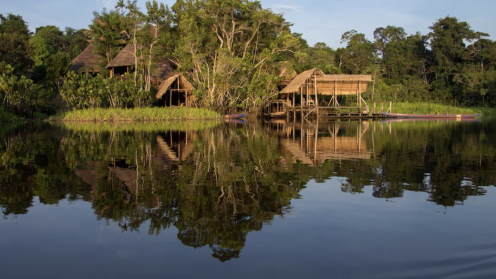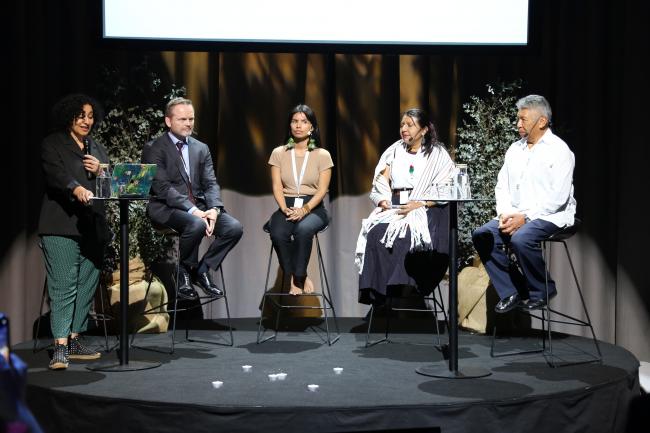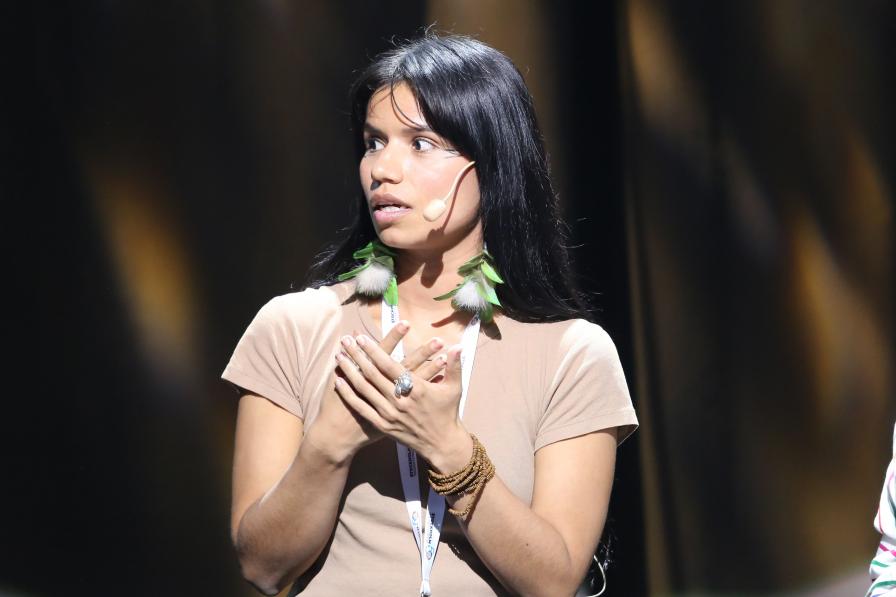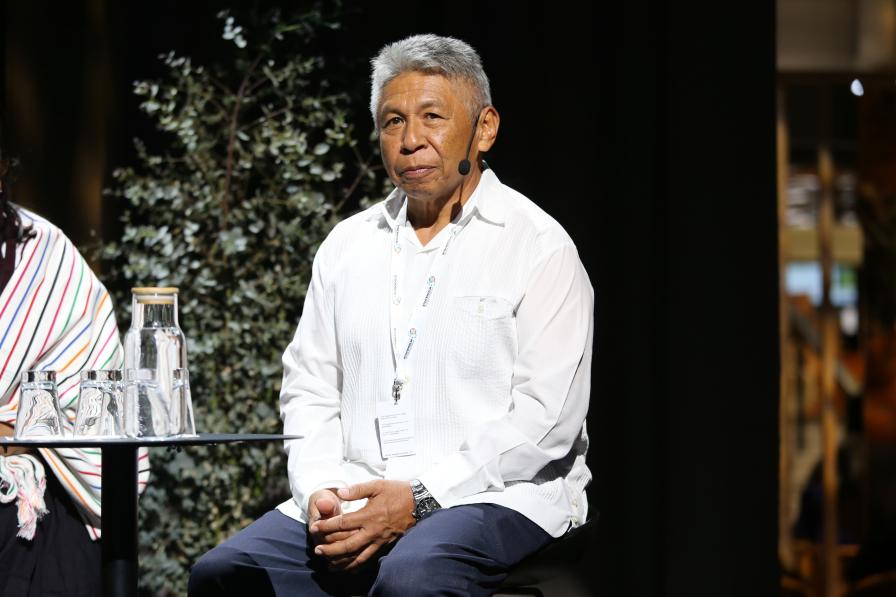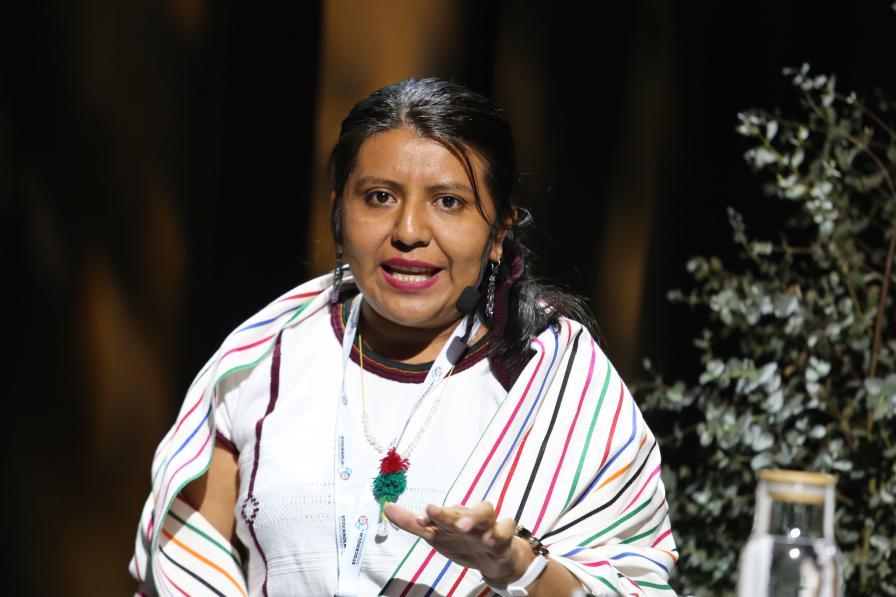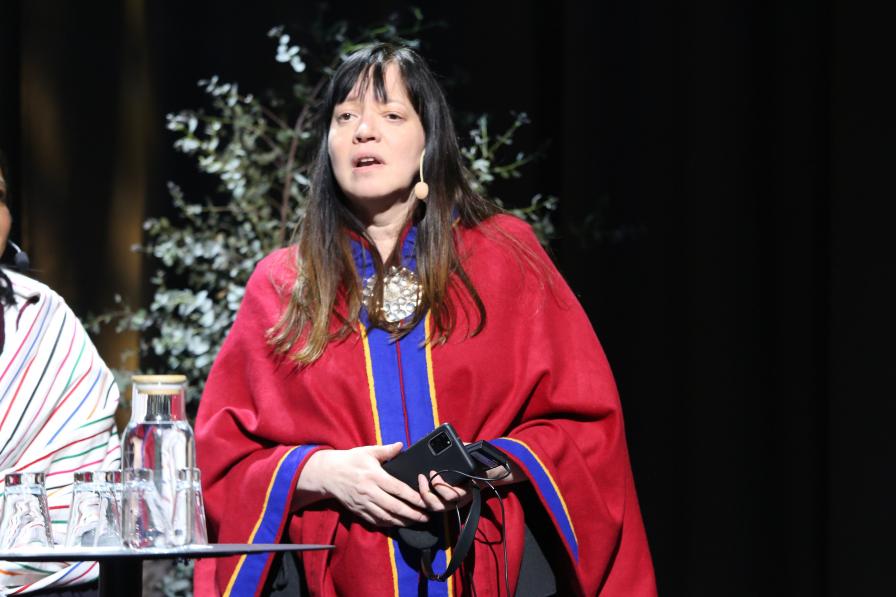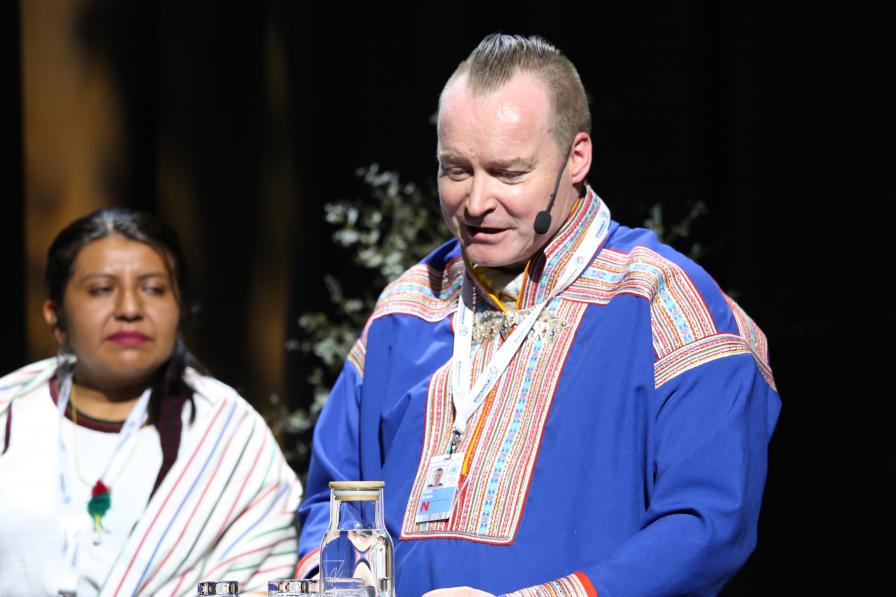About
Participants discussed the answers Indigenous Peoples can provide through their food systems, building on their traditional knowledge, unique territorial management practices, languages, culture, and spirituality.
Organizers: UN Environment Programme (UNEP), UN Educational, Scientific and Cultural Organisation (UNESCO), Food and Agriculture Organization of the UN (FAO), Global-Hub on Indigenous Peoples’ Food Systems, and World Reindeer Herders (WRH)
This side event, moderated by Siham Drissi, Programme Manager Officer, UNEP, focused on Indigenous Peoples’ food systems, which speakers said are some of the oldest and most sustainable on the planet and are intimately tied to the natural world. Participants discussed the answers Indigenous Peoples can provide through their food systems, building on their traditional knowledge, unique territorial management practices, languages, culture, and spirituality.
In an opening ceremony, Abadio Green Stocel, University of Antioquia, Medellín, Colombia, underscored the importance of traditional knowledge, and offered thanks to the ancestors and Mother Earth.
Tania Eulalia Martínez Cruz, Ëyuujk woman, Global Hub on Indigenous Peoples’ Food Systems, noted 60% of the caloric intake from modern agriculture comes from three crops – maize, wheat, and rice – and contrasted that with the richness of Indigenous systems that can include up to 250 crops in a single system. Emphasizing that 30% of greenhouse gas emissions come from agriculture, she stressed the need to change the way we produce food.
Francisco Rosado May, Universidad Intercultural Maya de Quintana Ro México, Indigenous Partnership, said the world is changing and even big corporations responsible for issues like climate change and biodiversity loss are looking for alternatives. Discussing regenerative agriculture, he stressed that conventional agriculture needs to change, lamenting that many of the traditional systems have also incorporated the use of chemicals or genetically modified crops. He underscored the need to think in an inter-cultural way, connecting Indigenous and non-Indigenous cultures without erasing any of them, and producing a change of paradigm.
Nina Gualinga, Kichwa community of Sarayaku, Amazonia Ecuatoriana and Amazon Watch, highlighted the role of Indigenous women. She said that in her culture, when children are born, they bury the umbilical cord in the ground to connect the child to the greater Mother that will nurture him/her after birth. She stressed the strong connection of Indigenous women with the land and their role in agricultural production, but noted their custodian role is hardly ever recognized.
Stig Ingemar Traavik, Norwegian Agency for Development Cooperation (NORAD), emphasized we are on the verge of a paradigm shift as we have realized that “throwing a lot of fertilizers and pesticides, and transporting products to the other side of the world, is not progress.” He highlighted Indigenous systems as “game-changing since they do not require external inputs,” and noted that the concept of Earth being alive is increasingly coming back.
Anne Nuorgam, Sámiráddi (the Saami Council) and UN Permanent Forum on Indigenous Issues (UNPFII), focused on fishery rights, describing the legal fight of the Sámi following a fishing act introduced in Sweden in 2017 that required them to buy a license to fish in their home river. The successful legal fight, which was finally decided at the Supreme Court, recognized their right to culture and allowed them to continue fishing.
Anders Oskal, Secretary General, Association of World Reindeer Herders, presented the Innovation FoodLab, a nomadic communication vehicle presenting Indigenous food knowledge at the global culinary stage. He noted its work on food is connected to resilience. He said the publication “Eallu,” a book written by Indigenous youth and a crowd-sourced endeavor that presents the food cultures of 14 different Indigenous communities, won the prize for the best food book in 2018.
Contact:
Siham Drissi | siham.drissi@un.org
More information:
https://www.unep.org/civil-society-engagement/partnerships/indigenous-issues
To receive free coverage of global environmental events delivered to your inbox, subscribe to the ENB Update newsletter.
